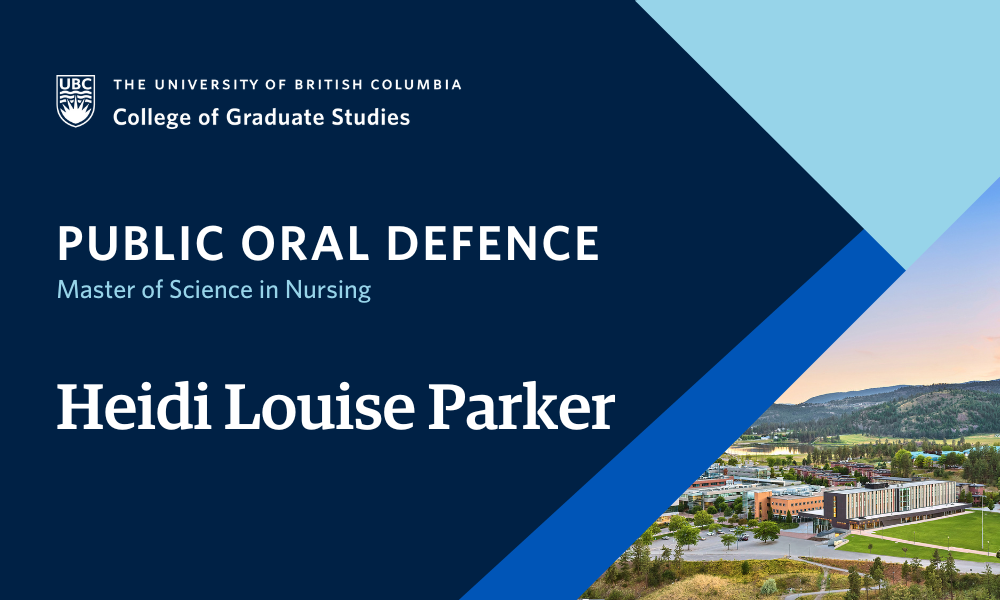
- This event has passed.
Thesis Defence: Nurses’ Communicative Practices Related to Medical Assistance in Dying (MAiD)
June 17 at 9:00 am - 1:00 pm

Heidi Louise Parker, supervised by Dr. Barbara Pesut, will defend their thesis titled “Nurses’ Communicative Practices Related to Medical Assistance in Dying (MAiD)” in partial fulfillment of the requirements for the degree of Master of Science in Nursing.
An abstract for Heidi Louise Parker’s thesis is included below.
Defences are open to all members of the campus community as well as the general public. Please email barb.pesut@ubc.ca to receive the Zoom link for this defence.
ABSTRACT
In 2016, Medical Assistance in Dying (MAiD) became legal in Canada. Since that time, nurses have played a unique role in the processes of MAiD. From initial patient inquiries, all the way through to a patient’s death, nurses require complex communication skills to navigate conversations with patients and families. Despite these conversations being difficult for nurses, little research has been completed on this topic.
In this qualitative study, I used Interpretive Description to answer the question, “How do nurses describe their communicative practices related to MAiD in Canada?” To do this, I completed a secondary analysis of 42 interviews with nurses in Canada in the years following the legalization of MAiD. I looked at how nurses described their communicative practices, what challenges nurses faced, and what is needed moving forward as more Canadians seek out MAiD.
The findings from this study revealed that nurses are involved in conversations that are unique to the MAiD context. Nurses face challenges in knowing how to respond to inquiries while abiding by the law and organizational policies. Nurses must have frank conversations about suffering and death while also educating patients about MAiD provisions. Where possible, nurses stay in touch with patients and continue to educate them about what is to come. Nurses have had to learn how to communicate during a new type of death. Finally, nurses stay in touch with families to provide support during the bereavement period.
This research suggests that, while nurses have developed strategies to communicate about MAiD in meaningful ways, challenges persist. This research provides recommendations for practice, education, and research. First, it is recommended that regulatory bodies or employers create guidelines to support nurses in communicating about MAiD. It is also recommended that further formalized education be developed that focuses specifically on communication and MAiD. Finally, it is recommended that additional research be completed to learn more about nurses’ current communicative practices and gain a better understanding of how nurses address challenging situations unique to MAiD. By implementing these recommendations, it is hoped that the uncertainty that nurses feel as they support patients through MAiD can be reduced.